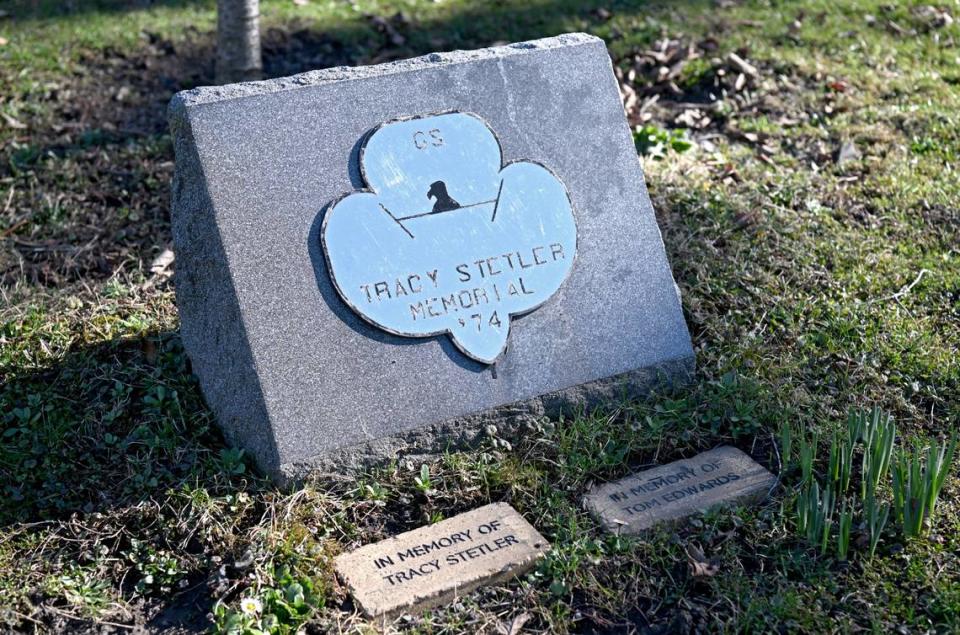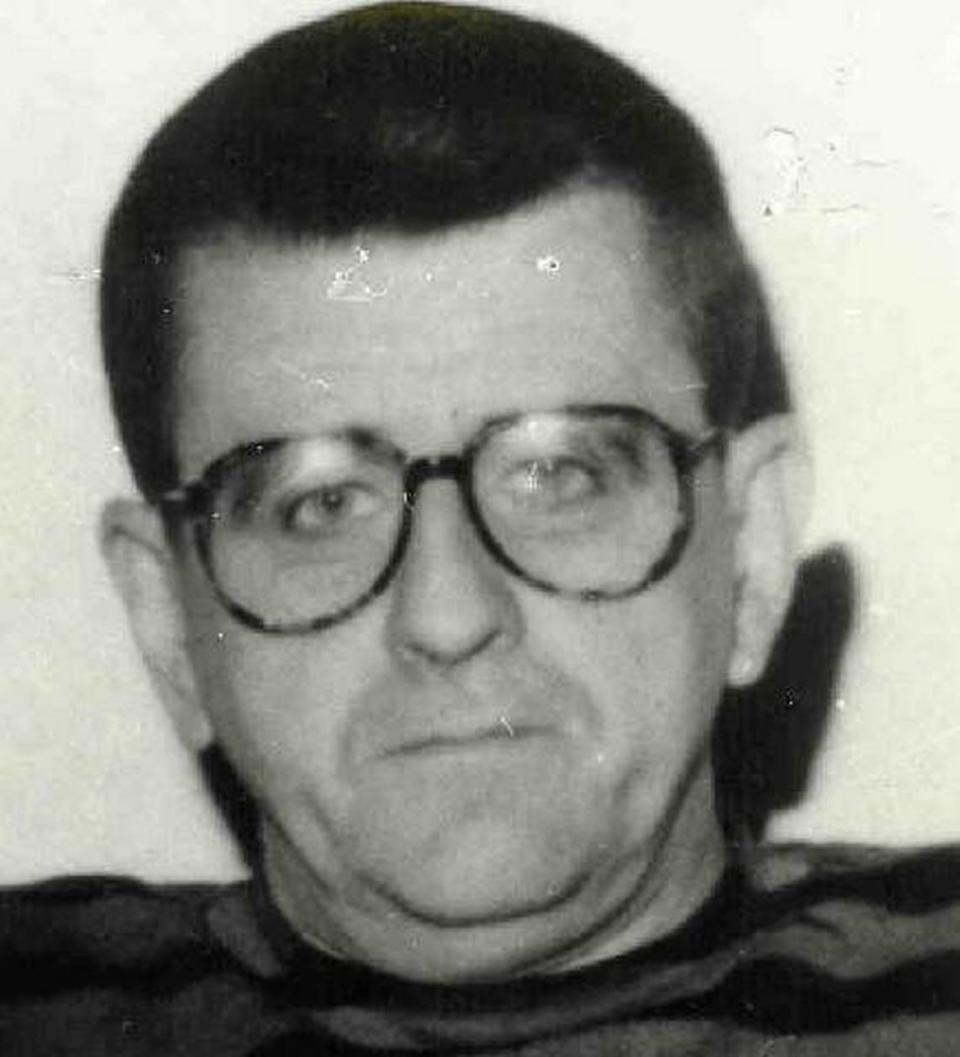‘The system failed her.’ After Philipsburg killer vanished, the push for justice continues
Nancy J. Stetler lived her final 23 years not knowing if the man convicted of killing her daughter in Philipsburg is dead or alive.
Found not guilty by reason of insanity in 1974 for slashing the throat of 12-year-old Tracy Stetler as she walked home from the Moshannon Valley YMCA, George Allen Keith was sentenced to spend the rest of his life at a state hospital.
Instead, the war veteran — who later testified he thought Stetler was a Viet Cong woman carrying a homemade bomb — exited a state hospital in rural northwestern Pennsylvania through an unlocked door four days before Christmas in 1999. He had been given permission to go outside, but was told not to leave the hospital grounds. The hospital had no perimeter fence.
He never returned and hasn’t been heard from since.
Could he have died from winter exposure in the vast wooded area near Warren State Hospital? Could he have gone to Mexico, where he fled before he was arrested for Stetler’s killing? Or is Keith, who would be 77, still alive?
Nancy Stetler, who died in August at 88, went to her grave unsure like everyone else.
“My mother deserved an apology for everything that happened after the fact,” her son and Tracy’s brother Zane Stetler told the Centre Daily Times. “It was handled very poorly.”
Monday marks 50 years since the killing. Stetler crossed paths with Keith on a night he told investigators he heard “voices” in his head after leaving a bar.
She wore sneakers and jeans, and carried a soft drink in her hand. Keith thought it was a bomb and falsely said she was wearing a straw hat and carrying a weapon, according to past newspaper accounts.
He followed her until she saw him.
“I thought she was going to destroy the depot,” Keith told police. “Had to grab her so she wouldn’t warn the other VCs that there were Americans in the area. That was my first time I ever killed a woman. It made me sick.”

After he killed her that night, Keith dragged her into a yard off Hillcrest Street. Her clothed body was found by two high school boys the next day. The violent attack stunned the rural community and still resonates a half-century later.
Former resident Sim Ziff, 58, described it as a “frightening time.” He said his parents — who owned a home on Hillcrest — got a German shepherd for protection after the killing.
The attack, he said, “changed everything.”
“Nothing ever happened like this,” Ziff told the CDT. “It’s just such a sleepy town.”
Allen Muir, who was 10 and lived in a house about two blocks from where her body was found, said in a text message to the CDT that he still remembers having an “eerie feeling upon hearing the news.”
He and his friends often walked through the woods by themselves on their way to the high school for wrestling practice, but were joined by his father the evening after Stetler’s body was found.
It was daylight on the walk to practice, Muir wrote, but “dark and silent” on the way back.
“I remember thinking about the murdered girl and how her killer could still be around. I was so glad my dad was with me,” Muir wrote. “The impact that I remember is how the calm and peaceful feeling went away for awhile. A murder happening in Philipsburg seemed so surreal.”
Keith was found about a month after the slaying in Mexico. He was brought back to Centre County for his trial.
Instead of choosing to present evidence and leave the verdict to a jury, Keith’s public defender opted for an unprecedented panel of three judges from as many counties.
Each of the three psychiatrists who evaluated Keith said he has schizophrenia and epilepsy, but only two found him to meet the legal definition of insanity when he killed Stetler.
Keith testified and told the judges he dropped out of school at 16, worked on a farm and joined the Army. He was sent to North Korea and was trained in guerrilla warfare.
It’s unclear if he served in the Vietnam War, but nine years after he was honorably discharged, he maintained he believed he was still fighting in a war zone.
“I believe she would have recognized me as an American soldier when I am up in that area,” Keith testified. “I knocked her out and killed her and stuff.”

State police at Warren Cpl. Jason Wagner oversees the ongoing investigation into Keith’s escape. Calls from the public about possible sightings, he said, have diminished over the years, leading much of the probe to be “department generated.”
Troopers, Wagner said, are hopeful advancements in DNA technology could provide insight into Keith’s whereabouts. He struck the tone one might expect from a veteran police officer when asked what he believed happened to Keith.
“I don’t really want to speculate on that. It’s, obviously, possible that he is still alive and out there, but it’s also possible that he is deceased,” Wagner said. “Just based on the report file, he was last seen walking out the door and that’s the last that anything’s been confirmed as far as a sighting of him.”
Zane Stetler, who was 8 when his sister was killed, represents the last of her immediate family. His father died in 1982.
His sister’s death has shaped him in ways both big and small. He still remembers his mother’s wail after the state police told her what happened to her daughter, describing it as “the most horrific scream I’ve ever heard in my entire life.”
But he also recalls trying to complete a Superman puzzle as investigators shuffled in and out his childhood home. As a teen, he said he’d occasionally wake up to his mother standing over him to make sure he was OK. Other times, she would pay him a visit while he was hanging out with his friends.
He described her as “very protective,” a trait he struggled to understand as a teen when his friends’ parents may not have employed the same approach. But now, as a father of three adult daughters, Stetler said he caught himself doing many of the same things.
He came to appreciate her level of care.
“I say that just to emphasize how long-lasting the effects of one event can be on more than one generation and the ripple effect of what it did to my family and my family members,” Stetler said. “... People don’t think beyond that part of it. They don’t think about all the indirect consequences of those actions of that one person and how it can affect a person for life.”
Stetler has been the bearer of his sister’s torch for most of his life, but especially after his mother’s death. Finding closure has proven elusive.
Stetler, who now lives in North Carolina, hopes a weekend pilgrimage to his hometown offers some degree of healing. He, his daughters and some of his sister’s closest friends plan to gather 11 a.m. Sunday at the borough’s office.
After, he plans to burn all of the old newspaper articles, petitions and other documents he accumulated over the years.
“I got to let it go. I’ve done everything I can to try to bring this man to justice,” Stetler said. “I’ve had enough. There just comes a time when you’ve got to give it up.”
Were his mother still alive, Stetler said he would continue to press forward, joining her search for answers that he knows may never come but could offer closure for Nancy and justice for Tracy.
“My mother went to her grave never knowing what happened to this man,” Stetler said. “The system failed her miserably.”


